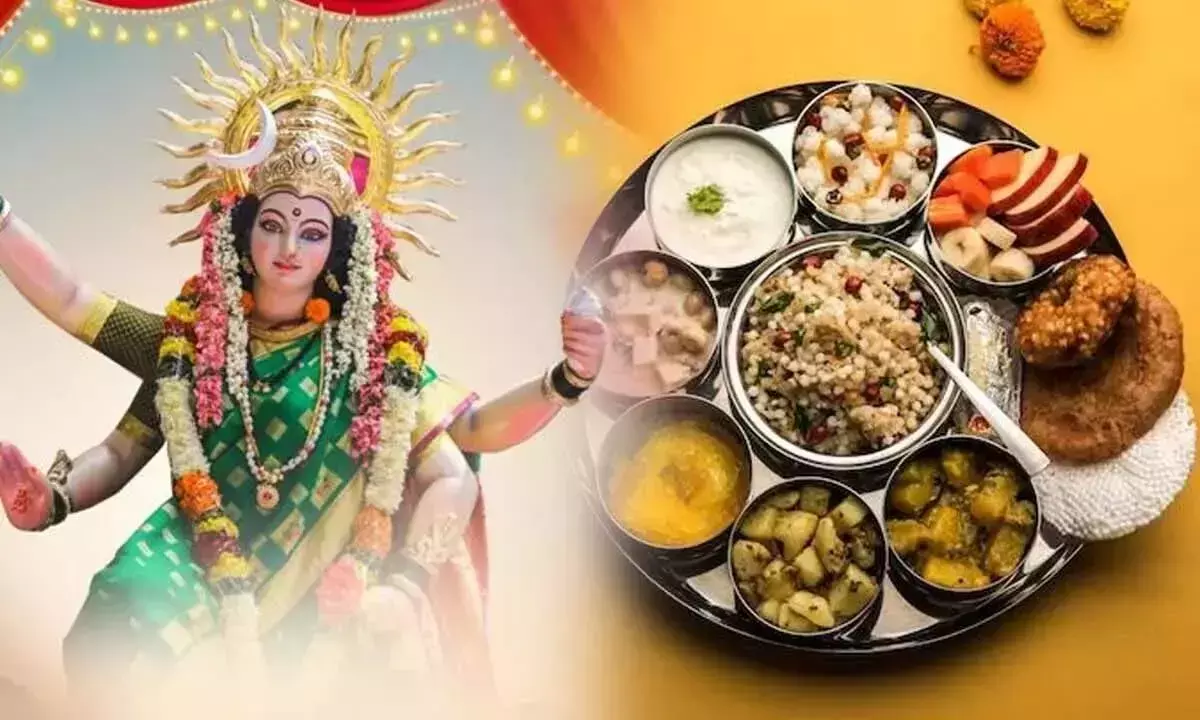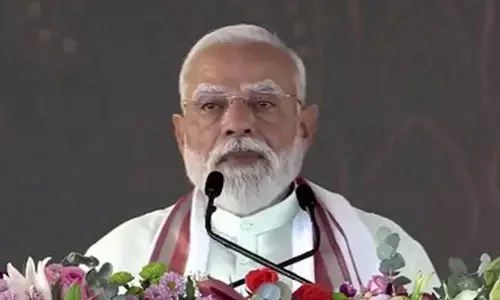Navratri Fasting: When, What, and How Often Should You Eat?

Navratri, a time of devotion and celebration, often involves fasting as a way to honour the Goddess.
Navratri, a time of devotion and celebration, often involves fasting as a way to honour the Goddess. While some people fast for the entire nine days, others choose to fast only on the first and last days of this holy period. Whether you fast for a day or the full nine days, maintaining proper nutrition is essential for good health.
How Often Should You Eat During Navratri Fasting?
Experts recommend consuming food multiple times a day rather than fasting for long periods. Ideally, you should eat at least three times daily, in small portions, to sustain your energy levels. Starting with a light meal or fruit after a prolonged fast is crucial. Overeating potatoes, fried snacks, or sugary foods can lead to digestive discomfort and other health issues.
Different Approaches to Navratri Fasting
There are various ways people observe Navratri fasting. Some individuals choose to abstain from both food and water for the entire nine days, while others follow a fruit-based diet or eat once or twice a day. For those seeking weight loss through fasting, drastically reducing food intake is common, but this can be counterproductive.
Health Benefits of Fasting When Done Right
According to health professionals, fasting isn’t just a religious practice; it also offers several health benefits. If done correctly, it can help detoxify the body, calm the mind, and provide relief from the daily intake of heavy foods. However, staying hungry all day without consuming anything can strain the body and may lead to nutrient deficiency.
Expert Advice on Fasting: What to Eat and Drink
Dietician Manisha Verma from Ram Manohar Lohia Hospital advises that fasting should not mean complete abstinence from food. It is essential to nourish the body with fruits, dry fruits, and hydrating beverages. Drinking buttermilk, juice, and water throughout the day helps keep you hydrated, while dry fruits like almonds, cashews, peanuts, and walnuts provide vital nutrients.
She stresses that skipping meals and eating a heavy meal at night can be harmful. After a long fast, begin with a small portion of food or fruit and avoid overindulging in fried foods or sweets.
Maintaining a Balanced Diet During Fasting
After breaking your fast, aim for light, nutritious meals such as curd, cucumbers, apples, lightly sautéed potatoes, or dishes like sago khichdi. Simple sweets made from bottle gourd or khichdi made from sawan rice are also good options. Maintaining a balance between liquid and solid foods is vital, with a 50-50 ratio recommended during the fast. If you consume fried items, ensure that the rest of your diet remains simple and healthy.
Does Fasting Lead to Weight Loss?
Many people believe that fasting all day will help them lose weight, but the opposite is often true. Manisha Verma explains that those who remain hungry throughout the day and consume large amounts of fried food in the evening may find that they gain weight instead of losing it. Eating small, frequent meals helps the body digest food more efficiently and prevents fat accumulation. On the other hand, consuming large quantities of food at night and then going to bed can strain the liver, leading to weight gain and fat buildup.
Conclusion
Fasting during Navratri can be a healthy practice if done correctly. Eating small, balanced meals throughout the day, staying hydrated, and avoiding overindulgence in fried or sugary foods will ensure that your fasting experience is both spiritually fulfilling and beneficial to your health.










